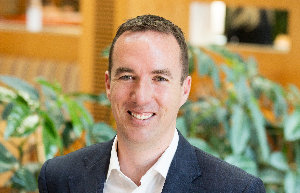
Sam Tremethick.
In this article, Tremethick shares his thoughts on the subject and what AIA is doing to help its staff and advisers.
When a Kiwi seeks financial advice from a professional, they deserve honesty, in-depth knowledge and careful consideration.
To further support this, new legislation came into effect this year to hold financial advisers to new standards of compliance and conduct.
This is a fantastic development that will ultimately help New Zealanders make more trusted and informed decisions, and be better with money.
Despite the positivity around these changes, we need to understand the impact this will have on some advisers and support them through this transition.
From March 2021, the administrative requirements for the profession expanded significantly. Some advisers are saying there is around 30 per cent more work involved than there was this time last year.
That’s a lot of extra time spent on administration, especially if you’re a sole operator.
Many of the advisers who are adjusting to the changes have spent their lives giving the best possible advice to the people in their communities.
They also play an incredibly important role in facilitating life and health insurance claims.
As you could imagine, this work can have a significant mental and emotional impact as they work very closely with people going through extremely tragic circumstances.
Research from the Financial Services Council revealed the recent regulatory changes impacted the mental health of more than a third of the New Zealand adviser community.
On top of this, a quarter said the changes have adversely impacted their physical health.
It is clear these changes are already taking their toll on Kiwi advisers.
When we look across the ditch, major Australian financial adviser regulation took place in 2019.
Startlingly, the suicide rate for advisers at the time was close to seven times higher than that of the Australian average.
It’s truly heartbreaking, and it’s a bleak warning of what could happen in New Zealand if we don’t effectively support advisers through these changes and prioritise their wellbeing.
At AIA NZ we’ve developed our own licences which financial advice providers can operate under.
All advisers under this umbrella have access to a free and anonymous Employee Assistance Programme (EAP) with professional counselling sessions as well as business planning, time management support, access to AIA’s training academy, and the benefit of our learning management system.
They also have free access to AIA Vitality, our science-backed health and wellbeing programme that supports individuals every day to make healthier lifestyle choices.
It’s driven by research showing that 30 per cent of depression is due to controllable factors including exercise, sleep, diet and smoking.
The research shows those who take more than 10,000 steps per day are found to have half the depression rate of those who take 2000 steps or less per day.
People who sleep less than four hours a night have a 32 per cent higher chance of developing depression than those who sleep seven or eight hours.
People who consume three or more sugary drinks per day increase the risk of depression by 11 per cent and current or ex-smokers have a 23 per cent higher risk of depression than a non-smoker.
All of this is addressed in the AIA Vitality app, with benefits for all individuals to directly combat these controllable factors of depression.
Sometimes people just need a little encouragement to take one small step at a time. When it comes to physical and mental health, those first few small steps can be the most important.
For the wider adviser community, we have a 12-week Executive Wellness Programme which is open to all in the profession. It’s designed to give attendees business strategy advice as well as insight into the AIA Vitality pillars and how they help us live healthier, longer, better lives.
Through these initiatives, we hope to support financial advisers and provide some of the tools they need to get through this difficult transition period.
The recent regulatory changes are necessary for the evolution of the profession, and for New Zealanders to make more informed choices with their money.
But collectively our industry also needs to recognise what advisers are going through and offer support as they transition into the new era.





Comments
No comments yet.
Sign In to add your comment